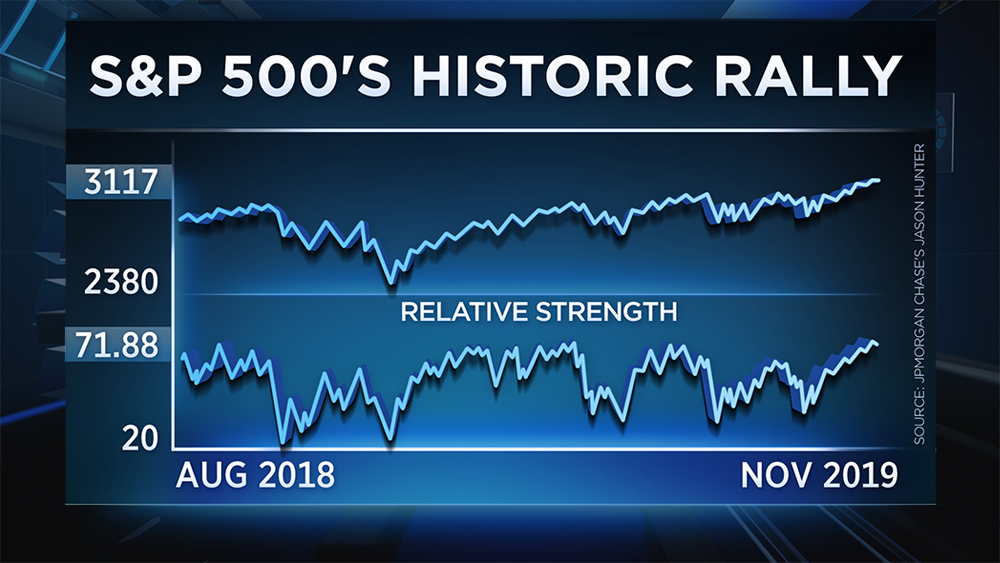- GOLD IRA
- Download Our 2024 Precious Metals IRA Investor’s Guide.
Click Here  Gold IRA
Gold IRA
 Investing
Investing
-
- CRYPTO IRA
- PRICES & STATS
- RETIREMENT PLANS
- BLOG
 Questions? Call (888) 820 1042
Questions? Call (888) 820 1042
Legendary Smart Money Investors Turn Bearish On Stock Markets for 2020
Disclosure: Our content does not constitute financial advice. Speak to your financial advisor. We may earn money from companies reviewed. Learn more

This past week a noted and almost revered institutional investor hall of famer Richard Bernstein turned bearish on the earnings of U.S. companies and the fortunes of the upcoming 2020 stock market. He became contrarian on the future direction of U.S. markets in the coming year. As we have seen in other news this week, Bernstein is far from alone in this sentiment.
It turns out that the much-anticipated resolution to the trade war conflict with China may or may not happen. Even if it does, the real conflict with China for the future domination of the world order has only just begun. Strap in for a bumpy 2020 in the financial markets.
Wall Street Famed Investor Richard Bernstein Predicts Earnings Recession in 2020
The titans of Wall Street may be of the consensus that the good times in financial markets are only set to continue for the foreseeable future, but there are dissenters appearing in their ranks at long last. Richard Bernstein has gone against his peers to declare that the probability is high for next year's corporate earnings to be negative. Bernstein warned you on the CNBC Trading Nation program this past Wednesday that:
“The one thing that people are kind of missing out [on] here is that earnings in the United States are still decelerating. By our work, we would argue that the first half of 2020 you could actually see a full blown profits recession. Our research shows that analysts have never forecasted a proper recession. They're very good at doing it once it occurs, but they've never actually forecasted one ahead of time.”
Bernstein Wars About Increased Volatility and Market Swings for the Coming Year
It was only back in September of 2018 that Bernstein still stood firmly in the U.S. financial markets bull market ranks. At the time, he confidently claimed that a “true bull market” was “nowhere to be seen.” In a little over a year later though, he feels confident that the conclusion of the longest bull market in America history is at last in plain view. Bernstein explained his newfound market caution this way:
“We're incrementally cautious. I don't want to leave the impression that we're under our desks in the fetal position or anything like that.”
In point of fact, Bernstein maintains a 50 percent exposure to equities in his investment portfolios. This is far lower than the 75 percent that he held for many years previously.
“By moving from 75 percent to 50 percent, everybody says, ‘oh, you're so bearish.' That shows that people are actually becoming incrementally more bullish in this kind of late phase, momentum phase of the market.”
Bernstein especially expects that volatility will rise sharply as profits keep decelerating and liquidity at last goes away. Bernstein added that:
“Volatility is probably going to be higher than people think next year.”
If last Wednesday was any indicator, then trouble is indeed coming. The major U.S. indices all closed in negative territory after sporting their worst trading day for the month of November.
Largest Hedge Fund in the World Bets on a Bearish Three Months in Markets
Reports also emerged this past week from the Wall Street Journal that Ray Dalio's Bridgewater, the biggest hedge fund on earth with $150 billion in assets under management has supposedly bet well over a billion on global stock markets to come down in the coming three months.
Bridgewater Associates will score big if the S&P 500 or the Euro Stoxx 50 (or both together) drop, according to people in the know who leaked the trade to the Wall Street Journal. The Journal claimed in its first report on the matter that the bet on declining markets relies on combinations of put options which Goldman Sachs and Morgan Stanley together assembled over several months for Dalio's hedge fund. This would provide the hedge fund with the right (but not the obligation) to sell stocks at a pre-set price on or by a given date.
The word on the street is that Bridgewater Associates shelled out roughly $1.5 billion for these massive bearish contracts. It would amount to nearly one percent of the entire portfolio under management at Bridgewater, according to the report. Bridgewater refused to confirm the trade or any motivation behind such a bearish gamble. Yet numerous investment strategists and investors have become more cautious over the last few weeks as each of the three major American equity indices attained new record highs. This chart below shows just how overbought markets are right now:

War for Future Global Dominance To Continue Between the U.S. and China?
It is ironic that the gains to new record highs in the markets have come at all. Headwinds facing down markets these days include a stalled trade war resolution that has seen the two superpowers still arguing back and forth over the preliminary trade agreement. This looked even less likely as the U.S. Senate unanimously voted to show solidarity with the protesters in Hong Kong this past week, taking a hard line against the communist government in Beijing.
The Chinese government responded by angrily declaring that the United States has no right to interfere in its own internal national affairs. This is a dubious claim at best as Hong Kong was until only 20 years ago a 100 year British colony that enjoyed more freedom as a British protectorate than any part of China does under its own national government today.
When Reuters printed quotes from insider sources claiming that the much-anticipated trade deal may not be finished in time for the end of 2019, the Dow Jones Industrial Average market plunged 258 points on Wednesday. Ray Dalio of Bridgewater remains less than optimistic with his predictions for future ties between the U.S. and China, as he reflected on the global reality that:
“There is a trade war, there is a technology war, there is a geopolitical war, and there could be capital wars. And how that is approached is going to determine what our futures are like. I honestly don't know how it will be approached. We want to be optimistic.”
Market Technicians Still Stubbornly Ignoring the Obvious Telltale Warning Signs
Such mega cap tech stocks hitting regular new highs at these speeds should be striking fear in the hearts of the market technicians. They all agree that the markets are overbought ironically. Yet almost none of them displays real concern about that fact. One technician Wantrobski does anticipate that profit taking is inevitable in the near future. Wantrobski warned about another danger looming, with:
“The danger here is that eventually, these overbought large cap indices (S&P 500, DJIA, etc.) will have to be reconciled against lagging small cap benchmarks (like the Russell 2000 and Smallcap 600) — which have thus far failed to make new recovery highs. This non confirmation out of the small/midcap area is creating a ‘negative divergence' of sorts. In the past, such divergences have been resolved via corrections — although the timing of such is difficult to pin down at this time.”
Three Near Term Threats Face Down the Markets
Another technician Johnson alluded to the three main threats facing down overbought markets these days, with:
“When will it end? What could go wrong? They've been telling us the ink is almost dry [on trade]. If that's wrong that is a problem. If GDP is weaker than expected, that's a problem. Brexit talks falling apart could also be a problem. From our perspective, we view signs of overbought conditions as validation of the breakout and not necessarily indicative of an end to the rally for now… As we have previously noted, overbought conditions can persist for meaningful periods of time before either a time or price correction unfolds.”
Unfortunately, this week's cracks in the fiction of financial market highs are troubling. This is another reason why gold makes sense in an IRA. You can consider some IRA-approved gold or IRA-approved silver as a hedge against all of the primarily stock market exposed investments in your retirement portfolio. Before you buy from a gold dealing firm though, you might want to read up on the Top Gold IRA companies first.



 Silver
Silver Gold
Gold Platinum
Platinum Palladium
Palladium Bitcoin
Bitcoin Ethereum
Ethereum

 Gold: $2,387.15
Gold: $2,387.15
 Silver: $27.92
Silver: $27.92
 Platinum: $931.67
Platinum: $931.67
 Palladium: $903.43
Palladium: $903.43
 Bitcoin: $67,909.13
Bitcoin: $67,909.13
 Ethereum: $3,254.68
Ethereum: $3,254.68